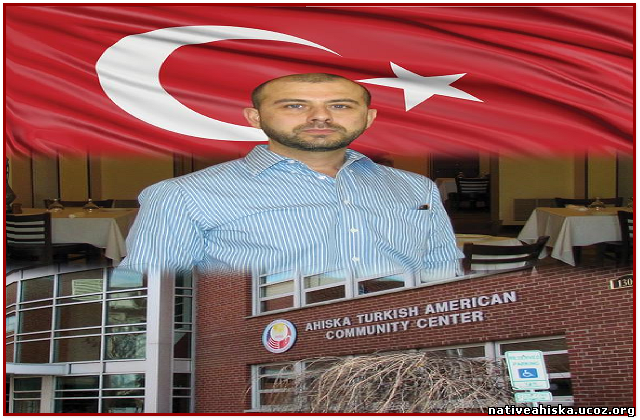| Главная » Статьи » NEWS » AHISKA TODAY |
The rise of Dayton’s Ahiska Turkish community
The rise of Dayton’s Ahiska Turkish community COVER STORY The rise of Dayton’s Ahiska Turkish community After decades of oppression, Dayton has become a new home for thousands of members of his long-displaced ethnic group. "It was a long and negative history,” said Baguirov, of the Ahiska Turkish population’s struggles finding a home during the past 70 years. "But the Ahiska Turks are good with their hands.” With those hands, thousands of members of the Ahiska Turkish community have built a new life in Dayton.  Eight years ago, the persecuted group began streaming into Dayton as a place to start anew, and today the city is home to 2,500 Ahiska Turks. In their short time here, they’ve built their way into the local real estate and logistics markets, with an estimated $60 million in economic impact since they first arrived, said Baguirov, a board member for Dayton Public Schools. This combines their collective investments in real estate, purchases of houses and cars, as well as logistics investments such as warehouses, truck stops and trucks. About 250 members of the community are truck drivers. Islom Shakhbandarov, president of the Ahiska Turkish American Community Center in Dayton, said the draw for Dayton was the opportunities for an ethic group to build from the ground up. "There’s huge opportunity here, where in a bigger city you face a lot more competition,” he said, adding that Dayton’s strong potential for logistics and distribution encouraged the immigrants to pick this city over others. Now, as the economy grows and the word gets out about their success, the leaders of Dayton’s Ahiska Turks say it’s time to open up into the wider business community of Dayton to grow. And they have a few in-kind ideas to put the wider business community on the international map. Ahiska Turks — a group first found in parts of the nation of Georgia in the former Soviet Union — have a long and difficult history. The Sunni Muslim group faced decades of persecution in the Meskheti region of Georgia, along the border with Turkey, with forced deportations during World War II that left the population, estimated at 500,000, widely dispersed between Kazakhstan, Azerbaijan, Russia and other countries. Baguirov is a veritable open book on the history of the ethnic group. Himself a native of the Caucasus region, he says the emergence of Turkish American businesses in Dayton — especially as they have outshone some other pockets of the group throughout the rest of the world — is a good sign. The ethnic group first began to come to Dayton in 2006, when six families lived in Dayton. The Ahiska Turkish Community Center was organized in 2009, and after three years about 400 families were living in Dayton, many of whom had resettled from other areas. Today, about 10,000 Ahiska Turk refugees have fled to America — and around 2,500 of them live in Dayton. "In eight years, what the Ahiska community has been able to achieve, even with coming here with nothing, many ethic communities do not achieve so quickly,” he said. "The fathers and mothers aren’t able to adapt to the new culture. But the comparison with those who stayed in Russia and remain in poverty is huge.” Indeed, such an ethnic group taking up residence in a new place makes it difficult to get businesses off the ground, said Riad Ajami, director of the Center for Global Business at Wright State University, because they often don’t know market conditions and might not have access to local resources. For those businesses, it’s important to pay attention to the rules and regulations of the United States, which is relatively easy to start a business in, but has a distinct set of rules. On the other hand, Ajami said American-owned businesses need to do their homework when dealing with a business of new immigrants. "Immigrant populations work hard, and want to do their best, but cross-cultural communication can be a barrier to supplier-investor relations,” Ajami said, "In the case of Turkey, people there value face-to-face interaction over formalized relationships. Family isn’t separate from business, either.” Indeed, the Turkish community weathered the Great Recession starting their own businesses and employing one another, but as the economy picks up again, the community is opening up from its tight-knit founding and becoming a presence in the rest of the local business world, Shakhbandarov said. The Ahiska Turks have become a player in the local real estate market, first buying and rehabilitating houses in Old North Dayton, and have also sought larger investments such as the multi-tenant 410 E. Fifth St. building, which houses Salar Restaurant & Lounge, Color of Energy Gallery and others. They’ve also become active in logistics and service businesses locally, as well as a growing local restaurant scene. The city has gotten behind the group, too, for its contributions. The Welcome Dayton plan, a long-term goal to make the city more immigrant friendly, has lauded the success of the Turkish community in Old North Dayton. Leaders have been especially positive of how the community has helped to offset population declines in the city. The Welcome Dayton initiative, an effort begun by city commission and then-mayor Gary Leitzell in 2011 to reach out to immigrants, sought to bring in new populations as people left the city. It’s had a palpable effect on the business world, with Dayton’s efforts earning a mention last fall in the New York Times. Forbes notes that 40 percent of Fortune 500 companies are founded by immigrants or their children, while the U.S. Small Business Administration found in 2012 that one in ten immigrants owns a business, with the group having a higher rate of business ownership than the overall population. "We should look at immigrants as a resource for helping the Dayton economy,” Leitzell said. Shakhbandarov said the public has become more interested in supporting the community. He said the chambers of commerce and the city have engaged the Turkish leaders, and more grocery stores have been in touch looking to add Turkish cuisine products, such as halal meats and certain Turkish-made juices and spices native to Turkey. The goal now, Shakhbandarov said, is to bring more out-of-country investment in Dayton. He said he wants to start an overseas investors’ forum for Dayton to attract interest. Foreign investment has been a hot-button issue. Both the Dayton Development Coalition and Tipp City-based Process Equipment Co. have sought to start up an immigrant investor program to attract foreign dollars into Dayton. Also known as EB-5, the program allows immigrants and their immediate family members to earn permanent residency by making a substantial investment in a business. Shakhbandarov said Dayton’s strategic location would be good to bring in more logistics hubs for overseas companies, because Dayton’s proximity to other cities means it would be a good jumping-off point for a logistics hub. Shakhbandarov wants to create a business consortium with local leaders which would help the Turkish community advocate the Dayton region internationally. Such an effort would increase imports and exports from the Dayton area and also help draw attention from other countries to Dayton’s own immigrant community. It’s had some traction in schools and government, but he said he’s looking for more buy-in from businesses for the idea. "Ohio has a great economy of businesses that work internationally, but thousands of mid-size businesses here are looking to grow customers overseas,” he said. "We’d like to be an asset to help grow the economy here, exporting more Dayton goods overseas and bringing back foreign investors.” THE TURKISH CENTER Like many of the other things Ahiska Turkish Americans have adapted in Dayton, the Ahiska Turkish American Community Center is a story of rebirth. The building, at 1306 E. Fifth St., was once a recreation center. Now it’s got a playground, mosque, a nursery, and meeting spaces. The upstairs section at one point also hosted business development classes. When it opened in 2012, the center attracted a multitude of Turkish American leaders from across the country as well as officials from the city. It’s since been a prominent site where officials from Dayton Mayor Nan Whaley to U.S. Sen. Sherrod Brown have visited. "The Ahiska Turkish story is one of resilience. It doesn’t hold grudges, it doesn’t keep prejudices from the past. It is looking forward. That’s something I try to take in my personal life.” Adil Baguirov, Dayton School Board member TURKISH DELIGHT: PASHA GRILL Chef J. Emre Bektas will offer you something to eat before a meeting. Such hospitality routinely comes before business in Turkish culture, he says. Bektas, who previously worked as an engineer in the area, has made waves with Pasha Grill, a Turkish cuisine hotspot at The Greene, which opened six years ago, about the same time the Ahiska Turkish community moved to Dayton. "The majority of the people don’t know much about Turkish food or culture, so that was the hardest task, to introduce that,” Bektas said. But the restaurant has grown in popularity. Its architecture — evocative of Mediterranean restaurants — uses chandleries and other decorations bought from bazaars in Istanbul. Bektas said people have taken to the food, though many of the dishes he serves are different from the things you might normally find in Midwestern American cuisine. But once they take the first step in trying something new, Bektas says, they come back again and again. The restaurant has attracted even the Turkish consulate general who has come several times. "We’re representing the community here, and the Turkish community is privileged to be here,” he said. "We have to present the food and the culture to go along with that. I think we do all right about that, introducing Turkish culture in the community.” TURKISH CUISINE It’s sometimes hard to get people from the Midwest to like Turkish cuisine, but Mediterranean food has begun to take hold in recent years, Bektas said. His Pasha Grill opened its doors six years ago, and other restaurants, such as House of Kabab in Centerville and Shish Wraps in Dayton, soon followed. The cuisine relies heavily on lamb meat and many of its recipes, such as hummus, which is a spread made from mashed chickpeas made with tahini and several other ingredients, have become more mainstream in recent years. "It’s something that people can be hard to move to take the first step, but once they do, it’s sort of like an addiction,” Bektas said.
| ||||
| Просмотров: 2188 | Рейтинг: 5.0/2 | ||||
| Всего комментариев: 0 | |







